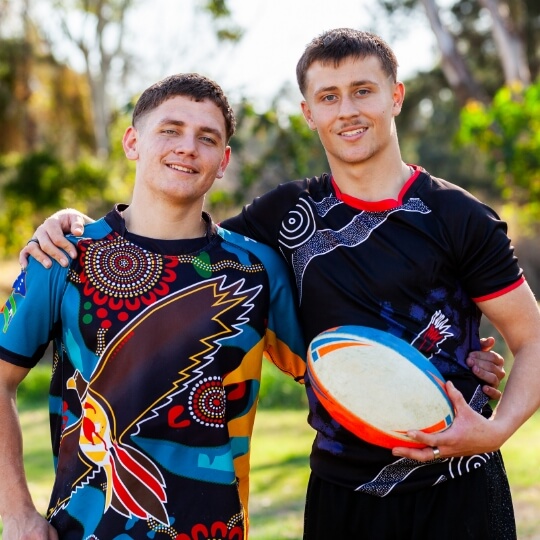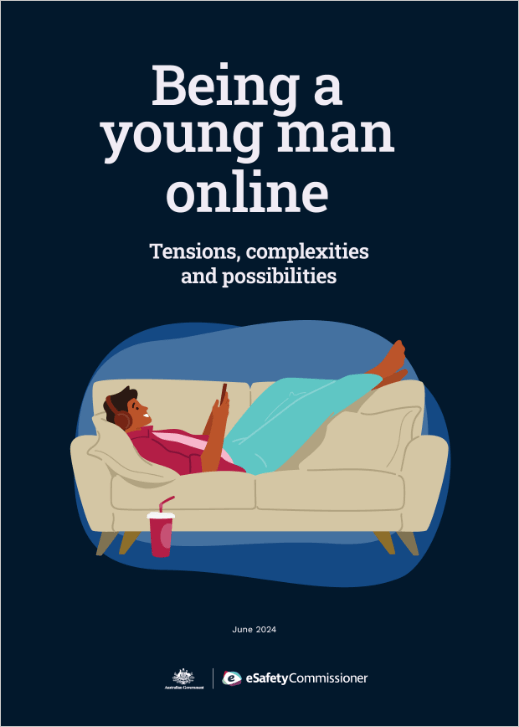Being a young man online

As one of the first generations growing up entirely in the digital age, their online experiences are marked by tensions, complexities and possibilities.
This report examines the online experiences of young men in Australia aged 16 to 21 years old. It’s based on the findings from a qualitative study involving more than 100 young men. It explores what influences, motivates, shapes and informs the online experiences of young men in their own words, based on focus groups and in-depth interviews.
The research was done by eSafety in collaboration with Deakin University and Queensland University of Technology in 2023.
It looks at how young men:
- shape and express their identities online
- explore sexuality online
- access and navigate social connections online.
This report is the first of a two-part project. The second part will explore practitioners' insights based on their experiences working with young men, looking specifically at healthy, positive masculinities and manhood.
Summary of key findings
The discussions and stories of young men in this study reveal that there are complex tensions when they describe their online experiences between freedom and anxiety, intimacy and caution, and connection and harm. In navigating these tensions, the young men we spoke to grapple with what it means to be a man in the digital age – sometimes conforming with harmful beliefs about manhood and masculinity, and at other times rejecting them.
Key findings based on the experiences of the young men involved in this study:
They shape and express their identities online
- Being online allows young men to express themselves freely.
- Self-expression online can be challenging for young men. They can feel pressured and anxious and even avoid being vulnerable when representing themselves as men online.
- Engaging with online influencers is a key way that young men shape their identities.
- Andrew Tate is a key social media influencer figure in many young men’s worlds.
They explore their sexuality online
- Some of the young men felt cautious about sharing intimate images online.
- Some were critical of online pornography.
They access and navigate social connections online
- Young men connect with friends online.
- Young men often find support and acceptance in online communities.
- Young men can experience and perpetuate harm in online communities.
- Online gaming communities can be a significant source of both connection and harm for young men who engage in them.
